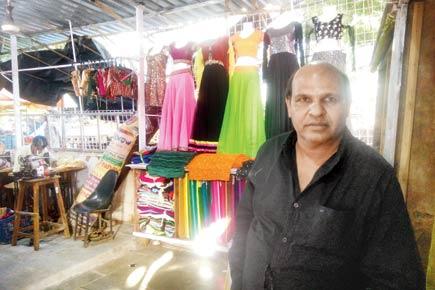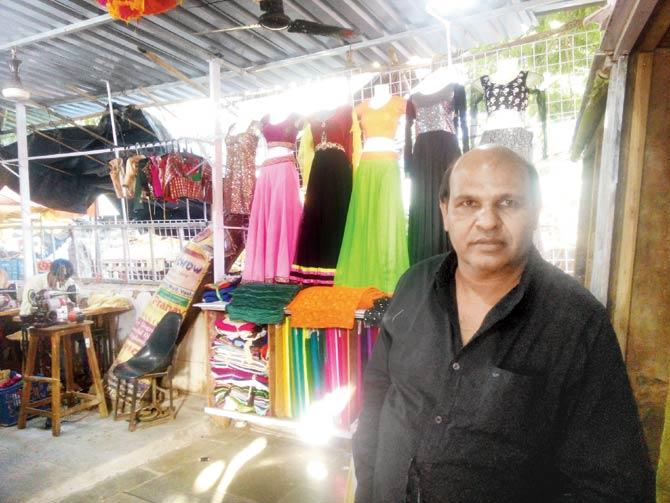Settled in his cozy shop in Navi Mumbai, 58-yr-old Abdul Aziz Mansoori is a happy man, overwhelmed with the Supreme Court’s decision to uphold the ban on dance bars in the state

Settled in his cozy shop in Vashi, filled with glittering ready-made dresses, 58-year-old Abdul Aziz Mansoori is a happy man, overwhelmed with the Supreme Court’s (SC) decision to uphold the ban on dance bars in the state. Mansoori is a tailor, who ran a successful business sewing dresses for dance bar girls before the ban.
ADVERTISEMENT

Abdul Aziz Mansoori outside his shop in Vashi
Speaking to mid-day hours after the SC’s decision was declared, Mansoori recalled the decade during the ban that will always hold bittersweet memories for him. Reminiscing his days before the ban was first imposed in 2005, Mansoori said that the ban was never justified and that he felt good hearing that the dance bars would once again become a reality in the state, and most importantly in Mumbai city, very soon.
Before the ban, dance bar girls would flock to Mansoori’s shop, leaving him and his associates with very little rest. “My shop resembled a fish market. However, it was a golden period for me as whatever I have achieved in my life is because of the dance bar business. I always felt that the ban was a wrong decision and today I am happy, and I also feel that justice has been done,” he said.
Never ending business
Mansoori revealed that he had over 400 girls as customers who would get their outfits made at his shop. “Every day, from 5 pm to 7 pm my shop was full of girls working in dance bars who were looking for new dresses and patterns. There would hardly be any space left for me to move around,” he added.
Mansoori further said that girls used to prefer the chaniya choli dress pattern and it was a hit amongst them. He says, “No other dress pattern looked attractive and revealing apart from a chaniya choli. Their choices used to differ depending upon the trends in the market. Most of the time, the fashion showed in Bollywood movies would influence girls.”
When the dance bar business was at its peak, Mansoori used to sew around 15-20 dresses for girls at any given time. The cost of each dress would range from Rs 1,000-Rs 10,000, depending upon the quality and work done on it. “The demand for dresses increased around December.
The girls bought dresses by the bulk and picked attractive outfits to impress their customers. There were times when a single girl would spend Rs 50,000 on dresses in one day!” he said. The announcement of the ban in 2005 felt like a kick to Mansoori’s stomach.
A majority of his revenue came from making dresses for dance bar girls. The ban meant that hard times were looming ahead. Recollecting the period, he said, “I had three flats around Navi Mumbai, which I had to sell after the ban came in to place. I lost all my customers and relied on the money collected from the sale of my houses.
There was a time when me and my co-workers would hardly get any sleep because of the onslaught of customers, but after the ban, we would hardly get any customers in the entire day. The ban not only affected our lives but also of the girls who were completely dependent on this business,” he said.
“My revenues reduced drastically as a result of which tension immerged in my personal life. It was a very difficult time for my family and other tailors liked me who were dependent on bar girl to run our business,” Mansoori adds. Now with the dance bar business likely to start very soon in the state, he is hopeful that the golden period of his life will return, once again.
 Subscribe today by clicking the link and stay updated with the latest news!" Click here!
Subscribe today by clicking the link and stay updated with the latest news!" Click here!






